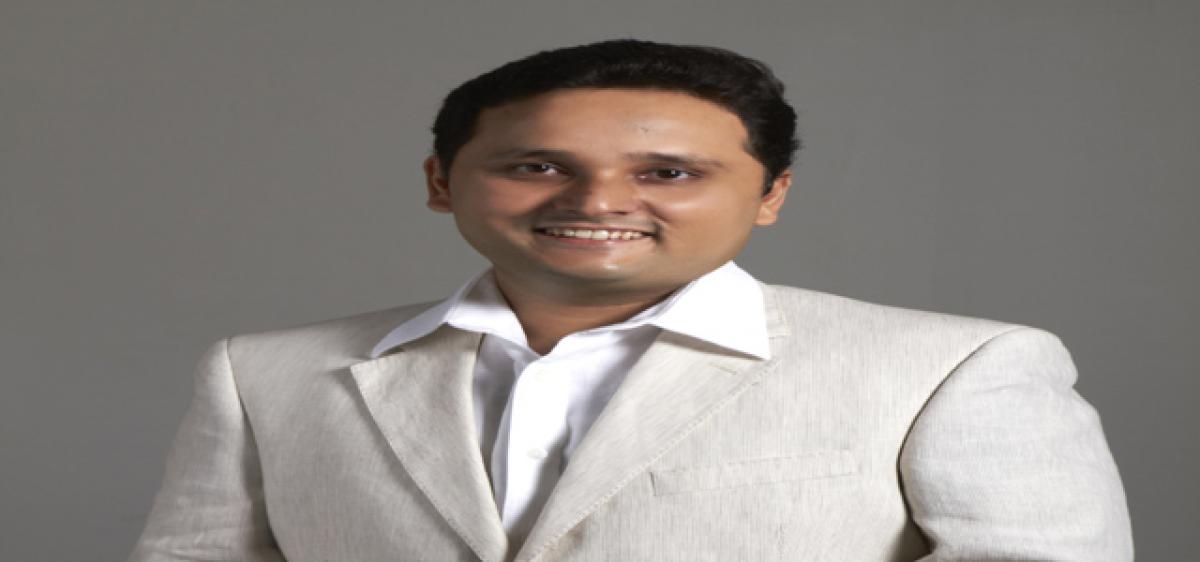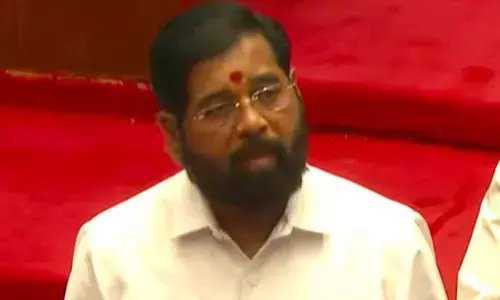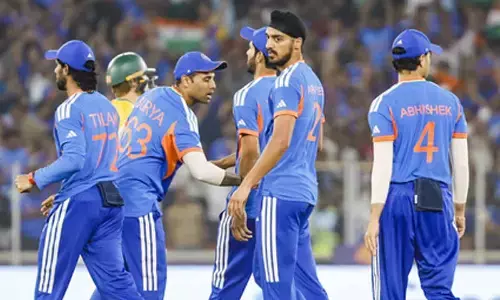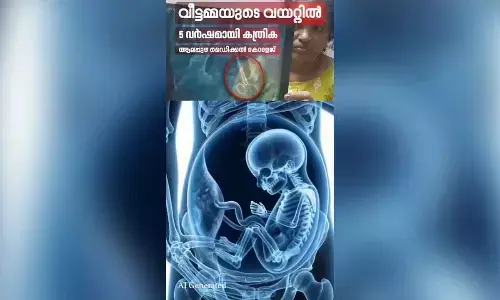Indian literature gets new Poster boy

Amish Tripathi, is best known for his Shiva Trilogy, which consists of ‘The Immortals of Meluha’, The Secret of the Nagas and The Oath of the Vayuputras.
Amish Tripathi, is best known for his Shiva Trilogy, which consists of ‘The Immortals of Meluha’, The Secret of the Nagas and The Oath of the Vayuputras.
His debut book ‘The Immortals of Meluha’ became a bestseller and reached the numero uno spot within a week. The Trilogy became the fastest selling book series in the history of Indian publishing. In a candid chat at TataLitLive the author speaks about his literary voyage.
You started out as a banker. Did you want to get into writing as a child and then just end up in banking, or was it the other way around?
I never thought I'd be a writer. I was never creative as a child. I was always a voracious reader, though. I read five to six books a month and I've been reading at that pace for years now. Everyone in my family is a voracious reader. My parents, my wife, my siblings, even my son is a big reader. He actually reads more than I do. He's doing six to seven books a month, mostly non-fiction.
He's reading a book about dinosaurs right now actually. So I think every good writer needs to be a good reader, but every good reader can't be a good writer. Which is why I never thought I'd get into writing. No one else ever expected me to be a writer. Even once I'd started writing, I never thought I'd get published. Till today, my friends ask me 'sachbata, kisne likha hai yeh?'
Did you expect that your book would be popular among the youth?
Yeah, there is quite an age gap between you and me. Thanks for making me feel old! I think it's very fashionable to say 'oh, young people aren't interested in religion'. But that isn't necessarily true. In fact, there's a story in the scriptures - I’m paraphrasing of course - but a story that had mention of Gods complaining, saying 'my children are so useless, they don't want to learn more about their culture'.
So clearly we've had this belief of the youth for about 2000 years (laughs). But every generation looks at their culture and religion differently, they bring their own views to it, as they should. And I think that they want to know more. Of all the ancient cultures, the Indian one is the only one that has lasted till today. Every other one has died out. And each generation that has lived through it has looked at it differently, but that doesn't mean that they aren't interested in it.
As Indians, we hold our Gods very close to us. We believe very strongly in their reality. Do you believe maybe that in the current political climate, we should be more responsible about our how we approach our beliefs?
See, I don't believe that anyone is in a position to judge. In our culture, we've always believed that even the Gods cannot judge. In Sanskrit, there's no word for 'blasphemy'. Blasphemy is an entirely new concept. I think that what is required is an openness to different views, different beliefs.
Because there is no 'one truth'. For example, there's so many versions of the Ramayana itself. You probably believe that the Ramayan includes the Lakshmanrekha, correct? Valmiki's Ramayana had no mention of this.
The reason that the Lakshmanrekha became such a popular belief was because of the 1980s TV show on the Ramayana, which in turn was based on a 1960s interpretation of the original. There's so many versions. There's one in which Sita kills Ravan! It's important to open yourself up to different interpretations, different versions of our 'truth'.
And you've never had any of the beliefs in your books attacked?
No, by the grace of God. My books have sold over 3.5 million copies by now and I've never had any media attack me for anything I've written. I think half these 'attacks' are made up by the writers themselves, along with their PR team as a publicity thing - I mean, let's be honest - it's a good marketing strategy.
So how do you choose your subjects?
All of my books are interconnected. In all my books so far, I've left hints to the books that I'll be writing over the next 20-25 years. But the particular subject is chosen completely at random. It could be something I read, an incident that took place.
What do you think lit fests in India right now are getting right and wrong?
Well, for one - literature and learning was never an elitist occupation. In ancient times, everyone - no matter what their class was - was acquainted with the same stories. I think we've moved away from that, but now lit fests are bringing literature back to the masses.
What I think they're getting wrong though, is not including enough regional writers. There's so many Marathi, Gujarati, Bengali, Tamilian writers - I could go on.








